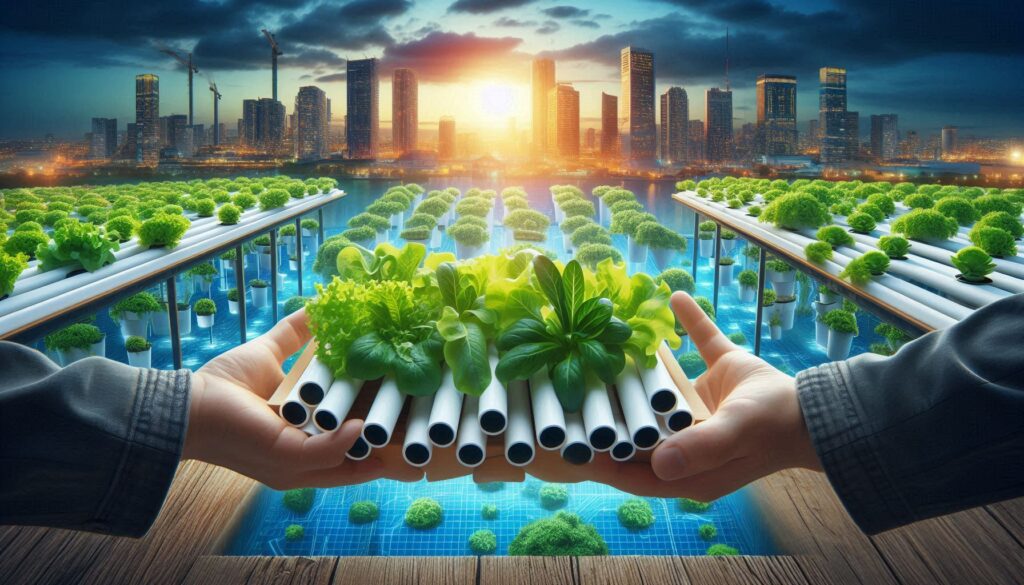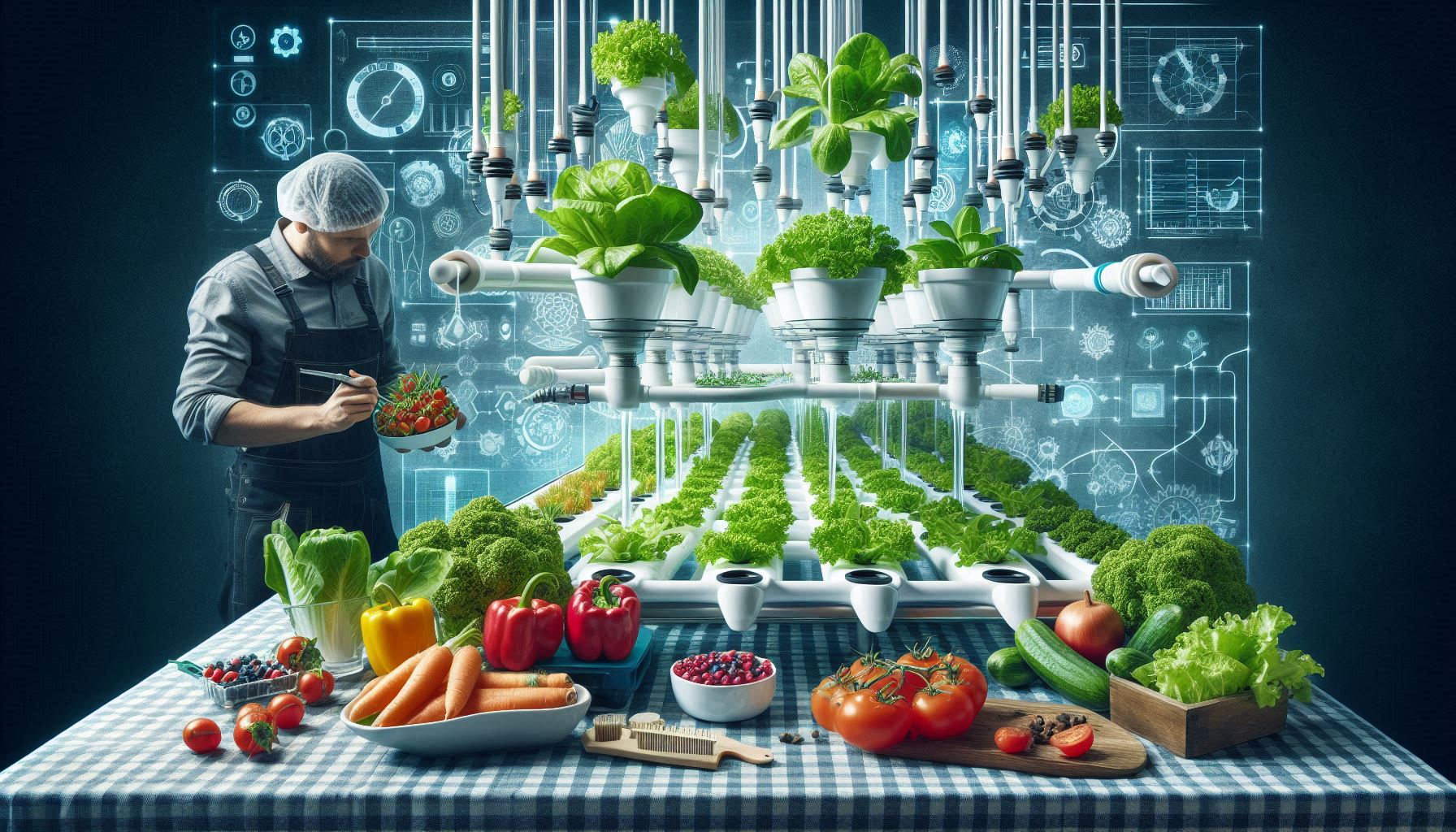In recent years, there has been a growing interest in sustainable agriculture practices that prioritize efficient resource utilization, reduced environmental impact, and higher yields. One such innovative method gaining traction is hydroponic gardening, a soilless cultivation technique that offers a range of benefits for sustainable agriculture. This article delves into the various advantages of hydroponic gardening and how it can contribute to sustainable food production.
Chapter 1: Understanding Hydroponic Gardening
What is Hydroponic Gardening?
Hydroponic gardening is a method of growing plants without soil by using nutrient-rich water solutions to deliver essential nutrients directly to the plant roots. This technique is highly versatile and can be implemented in various settings, from small-scale home gardens to large commercial operations.
Basic Components of Hydroponic Systems
Hydroponic systems consist of key components such as a reservoir for holding the nutrient solution, a nutrient delivery system, a growing medium to support the plants’ roots, and mechanisms for oxygenation. The controlled environment in hydroponic systems allows for precise nutrient management and optimal plant growth.
Chapter 2: Benefits of Hydroponic Gardening for Sustainable Agriculture

Efficient Resource Utilization
One of the primary advantages of hydroponic gardening is its efficient use of resources. Compared to traditional farming methods, hydroponic systems require significantly less water as the nutrient solution is recirculated within the system. This water-saving feature is crucial for sustainable agriculture, especially in regions facing water scarcity challenges.
Reduced Environmental Impact
Hydroponic gardening has a lower environmental footprint compared to conventional agriculture practices. By eliminating the need for soil cultivation, hydroponic systems reduce soil erosion, nutrient runoff, and pesticide use. This contributes to improved soil health, reduced water pollution, and overall lower environmental impact.
Higher Yields and Faster Growth
Plants grown in hydroponic systems often exhibit faster growth rates and higher yields than those grown in soil. The controlled environment of hydroponics allows for optimal nutrient absorption, leading to healthier plants and increased productivity. This improved efficiency is essential for sustainable agriculture to meet the rising global food demand.
Space Optimization
Hydroponic gardening is highly adaptable to various spaces, making it ideal for urban agriculture and indoor farming. Vertical hydroponic systems, in particular, maximize space utilization by allowing plants to grow upwards. This space-saving feature enables the cultivation of crops in areas where traditional soil-based agriculture may not be viable.
Year-Round Production
One of the key benefits of hydroponic gardening is the ability to grow crops year-round, regardless of seasonal limitations. By controlling factors such as light, temperature, and nutrient availability, hydroponic systems enable consistent production and supply of fresh produce, contributing to food security and market stability.
Pest and Disease Management
Hydroponic systems are less susceptible to pests and diseases that typically affect soil-based crops. By eliminating soil-borne pathogens and reducing exposure to pests, hydroponic gardening reduces the reliance on chemical pesticides and fosters healthier plant growth. This natural pest management approach aligns with sustainable agriculture principles.
Chapter 3: Case Studies and Success Stories
Urban Farming Initiatives
Urban areas face unique challenges in food production due to limited space and environmental constraints. Hydroponic gardening has been successfully implemented in urban farming initiatives worldwide, allowing communities to grow fresh produce locally and sustainably. Examples include rooftop gardens, vertical farms, and community hydroponic projects.
Commercial Hydroponic Operations
Several commercial hydroponic farms have demonstrated the viability of hydroponic gardening for large-scale agriculture. By harnessing advanced technologies and cultivation practices, these operations have achieved high yields, reduced resource consumption, and consistent crop quality. Such success stories highlight the potential of hydroponic systems for sustainable food production on a commercial scale.
Chapter 4: Future Prospects and Recommendations
Research and Innovation
Continued research and innovation in hydroponic gardening are essential for unlocking its full potential in sustainable agriculture. Advancements in nutrient formulation, system automation, energy efficiency, and crop diversification will further enhance the sustainability and productivity of hydroponic systems.
Education and Outreach
Education and outreach programs play a crucial role in promoting hydroponic gardening practices among farmers, gardeners, and communities. Training initiatives, workshops, and resource sharing can help foster awareness and adoption of hydroponic techniques, paving the way for a more sustainable agricultural future.
Hydroponic gardening offers a range of benefits for sustainable agriculture, from efficient resource utilization to reduced environmental impact and higher yields. By harnessing the advantages of hydroponic systems, farmers, growers, and communities can contribute to a more resilient and environmentally friendly food production system. With continued research, innovation, and education, hydroponic gardening has the potential to revolutionize the way we cultivate crops and address the challenges of global food security in a sustainable manner.

